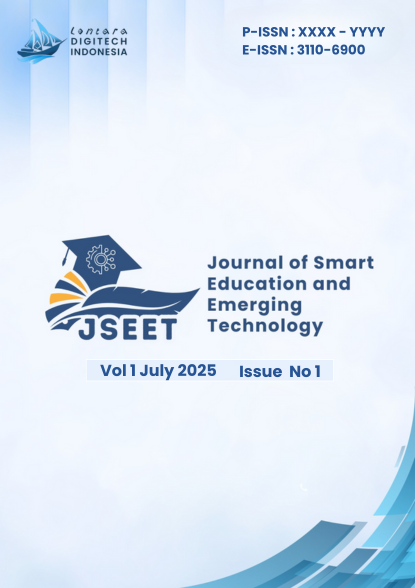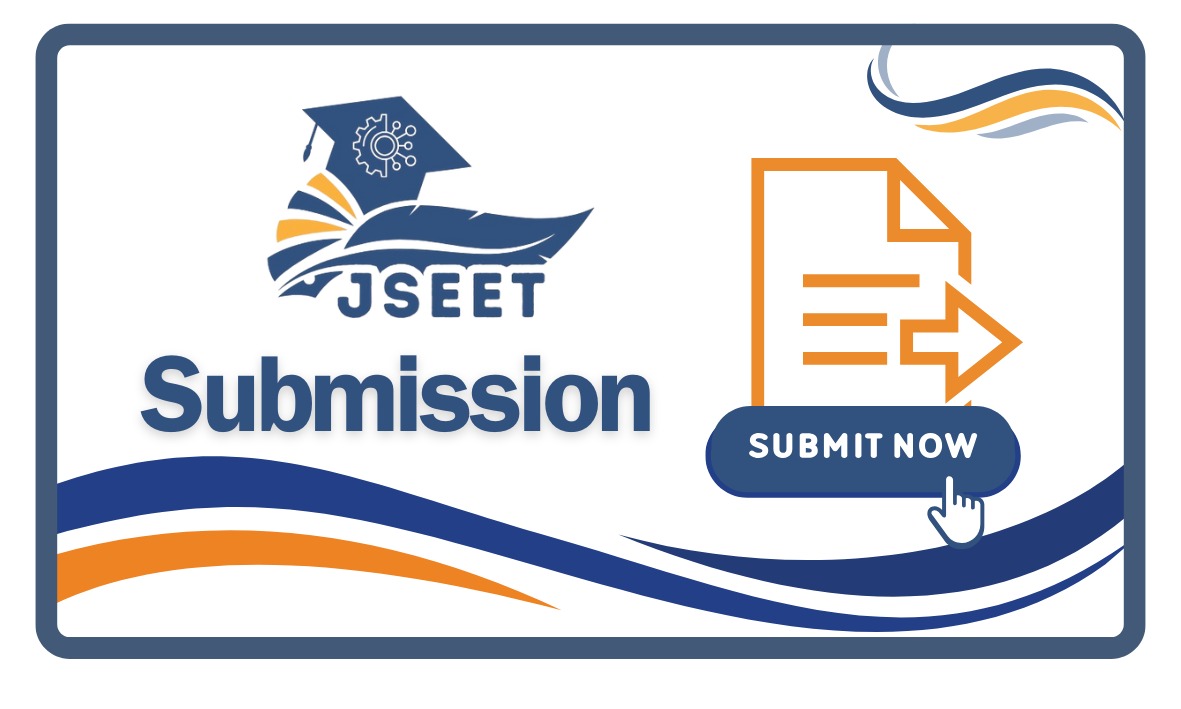The Influence of AI and Social Media on Academic and Mental Health: Perspective Makassar State University Students in the Smart Learning Era
Keywords:
Artificial Intelligence , Social Media , Academic Achievement , Mental Health , Smart LearningAbstract
Background/Context: The era of smart learning has significantly transformed the way students interact with technology, particularly through artificial intelligence (AI) and social media. While these technologies provide opportunities for innovation in education, they also present challenges related to academic performance and mental well-being.
Objective/Purpose: This study aims to analyze the influence of AI and social media use on the academic performance and mental health of students at State University of Makassar.
Method: A quantitative descriptive approach was applied, using a Likert-scale questionnaire distributed to university students. Data were analyzed to identify patterns and relationships between technology use, academic achievement, and psychological conditions.
Results: The findings indicate that AI use has a generally positive impact, particularly in supporting the effectiveness of learning and enhancing academic outcomes. In contrast, the influence of social media is more diverse. While moderate use can provide social and emotional support, excessive engagement is linked to anxiety, stress, and reduced focus, negatively affecting mental well-being.
Conclusion: The study highlights the dual role of technology in higher education. AI contributes to more effective and personalized learning, whereas social media requires careful management to prevent adverse effects on students’ mental health. These results provide insights for developing strategies that promote a balanced integration of technology in education, ensuring both academic success and psychological well-being in the smart learning era.
Downloads
References
Alifah, N., & Hidayat, A. R. (2025). Effectiveness of Artificial Intelligence-Based Learning Analytics Tool in Supporting Personalized Learning in Higher Education. Jurnal Pendidikan Progresif, 15(1), 74–84. https://doi.org/10.23960/jpp.v15i1.pp74-84
Chang, H., Liu, W., Chu, L., & Li, X. (2024). A Study on the Evaluation of AI’s Impact on University Students’ Learning Based on Data Analysis and Machine Learning. Highlights in Science, Engineering and Technology, 103, 485–495. https://doi.org/10.54097/cre9tq60
Costigliola, F. C. (2019). Library of Congress Cataloging in Publication Data. In Awkward Domestications (pp. 381–382). https://doi.org/10.7591/9781501721144-016
Deviv, S., Munir, N. S., Arifuddin, M. S., & Aprilia, A. (2024). Analisis Eksploratif Tentang Pola Interaksi Mahasiswa dengan Konten Edukatif di Sosial Media (Implikasi untuk Peningkatan Pembelajaran Berbasis Teknologi). 4(3), 1679–1696.
Hair, J., & Alamer, A. (2022). Partial Least Squares Structural Equation Modeling (PLS-SEM) in second language and education research: Guidelines using an applied example. Research Methods in Applied Linguistics, 1(3), 100027. https://doi.org/10.1016/j.rmal.2022.100027
Hawanti, S., & Zubaydulloevna, K. M. (2023). AI chatbot-based learning: Alleviating students’ anxiety in english writing classroom. Bulletin of Social Informatics Theory and Application, 7(2), 182–192. https://doi.org/10.31763/businta.v7i2.659
Hutahaen. (2015). Metode penelitian kuantitatif, kualitatif dan R & D (Vol. 2).
Impey, C., Wenger, M., Garuda, N., Golchin, S., & Stamer, S. (2025). Using Large Language Models for Automated Grading of Student Writing about Science. International Journal of Artificial Intelligence in Education. https://doi.org/10.1007/s40593-024-00453-7
Imran, M., Almusharraf, N., Abdellatif, M. S., & Abbasova, M. Y. (2024). Artificial Intelligence in Higher Education: Enhancing Learning Systems and Transforming Educational Paradigms. International Journal of Interactive Mobile Technologies, 18(18), 34–48. https://doi.org/10.3991/ijim.v18i18.49143
Jian, M. J. K. O. (2023). Personalized learning through AI. Advances in Engineering Innovation, 5(1), 16–19. https://doi.org/10.54254/2977-3903/5/2023039
Kaiss, W., Mansouri, K., & Poirier, F. (2023). Effectiveness of an Adaptive Learning Chatbot on Students’ Learning Outcomes Based on Learning Styles. International Journal of Emerging Technologies in Learning (iJET), 18(13), 250–261. https://doi.org/10.3991/ijet.v18i13.39329
Lillywhite, B., & Wolbring, G. (2024). Auditing the impact of artificial intelligence on the ability to have a good life: Using well-being measures as a tool to investigate the views of undergraduate STEM students. AI & Society, 39(3), 1427–1442. https://doi.org/10.1007/s00146-022-01618-5
Nti, I. K., Akyeramfo-Sam, S., Bediako-Kyeremeh, B., & Agyemang, S. (2022). Prediction of social media effects on students’ academic performance using Machine Learning Algorithms (MLAs). Journal of Computing in Higher Education, 9(2), 195–223. https://doi.org/10.1007/s40692-021-00201-z
Prasasty, T. A. (2023). Cyberspace: Perubahan Gaya Komunikasi Pada Lingkar Pertemanan. MEDIAKOM Jurnal Ilmu Komunikasi, 7(1), 59–68. https://doi.org/10.3258/mediakom.v7i01.2346
Putri, V. A., Sotyawardani, K. C. A., & Rafael, R. A. (2023). Peran Artificial Intelligence dalam Proses Pembelajaran Mahasiswa di Universitas Negeri Surabaya. Prosiding Seminar Nasional Universitas Negeri Surabaya, 2, 615–630.
Romero-Rodríguez, J.-M., Hinojo-Lucena, F.-J., Kopecký, K., & García-González, A. (2023). Fatiga digital en estudiantes universitarios como consecuencia de la enseñanza online durante la pandemia Covid-19. Educación XX1, 26(2), 165–184. https://doi.org/10.5944/educxx1.34530
Shahzad, M. F., Xu, S., Lim, W. M., Yang, X., & Khan, Q. R. (2024). Artificial intelligence and social media on academic performance and mental well-being: Student perceptions of positive impact in the age of smart learning. Heliyon, 10(8), e29523. https://doi.org/10.1016/j.heliyon.2024.e29523
Syahzad, M. F., & Khan, Q. R. (2024). Helion dan kesejahteraan mental: Persepsi siswa tentang dampak positif di era pembelajaran cerdas. 10(4).
Wambsganss, T., Janson, A., & Leimeister, J. M. (2022). Enhancing argumentative writing with automated feedback and social comparison nudging. Computers & Education, 191, 104644. https://doi.org/10.1016/j.compedu.2022.104644
Widayanti, T., & Pembuatan, A. (2020). Pemanfaatan Google Form dalam Mendukung Pengumpulan Data untuk Karya Ilmiah Mahasiswa. Tri Widayanti Implie, 1(1), 85.
Wijaya, J., Kennedy, W., Zhang, H. Y., Hafsa, Z. S., & Vincent, V. (2023). Dampak Extra Penggunaan Teknologi Artificial Intelligence (AI) Terhadap Prestasi Akademik Mahasiswa Kota Batam. SEIKO Journal of Management and Business, 6(2), 2023–2228.








 Email :
Email : 
